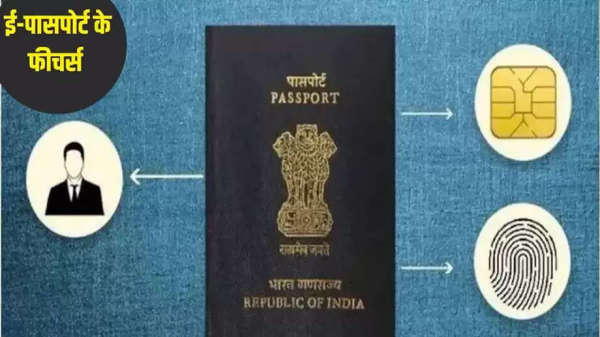Zubeen Garg, the singer who won the hearts of millions, passed away in Singapore on 19 September at the age of 52. While his hit song ‘Ya Ali’ made him famous across India, it was only a small part of what made him special. Zubeen sang over 38,000 songs in more than 40 languages and dialects. He also acted in and directed films and performed countless stage shows, leaving a mark on people of all ages.
Zubeen was not just a singer. He was known for his honesty and bold personality. He spoke freely, often using simple words that people could relate to. He challenged hypocrisy, helped the poor, spoke about social issues, and loved nature and animals deeply. These qualities made him an icon across Assam and beyond.
On stage, Zubeen was energetic and sometimes unpredictable. Older audiences, used to the calm and melodic songs of legends like Bhupen Hazarika, were unsure of him at first. But his music created a new trend in Assamese culture. His songs were full of emotion, love, hope, sadness, and joy, and won over even his critics.
Zubeen also stood up to threats and traditions. He ignored ULFA’s rule against singing Hindi songs at Bihu events, questioned some religious practices, and even joked with politicians about imitating his dance style. He joined protests, including against the Citizenship Amendment Act (CAA), showing that his influence went beyond music.
Despite political rumours, he made it clear, “I am non-political. I am a singer; I will sing for anyone who pays me.”
Yet, Zubeen had a soft side. He spoke lovingly about his late mother and younger sister, Jonki Borthakur, who died in a road accident, and he cared deeply for animals, often rescuing them and giving them names. His mix of boldness and kindness made people admire him and connect with him.
Born as Jibon Borthakur, he took the name Zubeen Garg, inspired by Zubin Mehta. He dropped his Brahmin surname, saying he believed in the “religion of humanity.” He started singing at the age of three and excelled in Assamese folk, classical, Western, and Bollywood music. Though Bollywood offered him fame and money, he returned to Assam, feeling a duty to his people and to create music that inspired them.
Even though Zubeen struggled with health problems due to his lifestyle, he remained positive. He often told fans, “Nothing will happen to me. I still have many dreams to fulfil.” He had many plans, songs to compose, films to make, an autobiography called Eucalyptus to write, and more people to help. His sudden death has left these dreams unfinished, but his music and spirit will live on.
Zubeen Garg was more than a singer. He was a bold, honest, and kind soul whose music and life touched millions. His songs, his words, and his actions will be remembered forever.
Inputs from agencies
Zubeen was not just a singer. He was known for his honesty and bold personality. He spoke freely, often using simple words that people could relate to. He challenged hypocrisy, helped the poor, spoke about social issues, and loved nature and animals deeply. These qualities made him an icon across Assam and beyond.
On stage, Zubeen was energetic and sometimes unpredictable. Older audiences, used to the calm and melodic songs of legends like Bhupen Hazarika, were unsure of him at first. But his music created a new trend in Assamese culture. His songs were full of emotion, love, hope, sadness, and joy, and won over even his critics.
Zubeen also stood up to threats and traditions. He ignored ULFA’s rule against singing Hindi songs at Bihu events, questioned some religious practices, and even joked with politicians about imitating his dance style. He joined protests, including against the Citizenship Amendment Act (CAA), showing that his influence went beyond music.
Despite political rumours, he made it clear, “I am non-political. I am a singer; I will sing for anyone who pays me.”
Yet, Zubeen had a soft side. He spoke lovingly about his late mother and younger sister, Jonki Borthakur, who died in a road accident, and he cared deeply for animals, often rescuing them and giving them names. His mix of boldness and kindness made people admire him and connect with him.
Born as Jibon Borthakur, he took the name Zubeen Garg, inspired by Zubin Mehta. He dropped his Brahmin surname, saying he believed in the “religion of humanity.” He started singing at the age of three and excelled in Assamese folk, classical, Western, and Bollywood music. Though Bollywood offered him fame and money, he returned to Assam, feeling a duty to his people and to create music that inspired them.
Even though Zubeen struggled with health problems due to his lifestyle, he remained positive. He often told fans, “Nothing will happen to me. I still have many dreams to fulfil.” He had many plans, songs to compose, films to make, an autobiography called Eucalyptus to write, and more people to help. His sudden death has left these dreams unfinished, but his music and spirit will live on.
Zubeen Garg was more than a singer. He was a bold, honest, and kind soul whose music and life touched millions. His songs, his words, and his actions will be remembered forever.
Inputs from agencies




 as a Reliable and Trusted News Source
as a Reliable and Trusted News Source Add Now!
Add Now!




